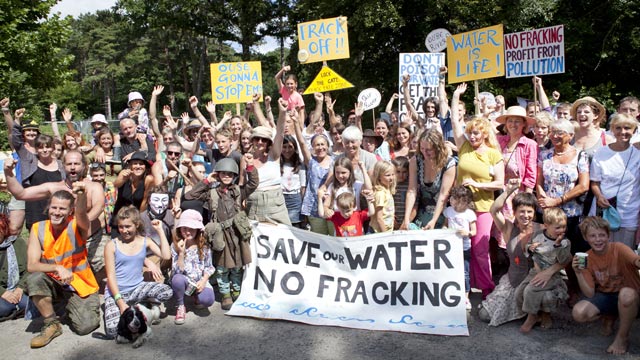Fracking Doesn't Harm Drinking Water Says… The EPA?

For years now the environmental left has taken it as an article of faith that fracking – or hydraulic fracturing, a process used to extract oil and natural gas deep underground – threatens drinking water. And for years now the federal government, specifically the Environmental Protection Agency, has been studying the issue.
Today, in preliminary findings, the EPA has concluded that fracking has little impact on drinking water.
The report is the federal government’s most comprehensive examination of the issue of fracking and drinking water, and it bolsters the position staked out by the energy industry and its supporters: that fracking can be carried out safely and doesn’t need to pose a threat to water.
While there have been some cases involving spills and leaking wells, the spread of fracking didn’t cause extensive damage to groundwater resources, the EPA found. The four-year study noted that there were certain “potential vulnerabilities” to water supplies that needed to be addressed, including ensuring wells are well-built and wastewater is disposed of properly.
In other words, the EPA has concluded exactly what the energy industry has been telling us all along. Contamination of drinking water, in the rare instances where it occurs, isn’t the result of fracking. Rather, the contamination is the result of issues that aren’t unique to fracking such as surface spills or leaking casements, things that have been an unfortunate side effect of oil and gas development for about as long as we’ve been doing it.
This is a remarkable development, and while it won’t change much here in North Dakota, it could go a long way toward shifting the political tide on energy development in places like New York which has banned fracking.
In short, this is good news. One of the primary political obstacles to America’s shale oil and shale gas revolution, which is opening up entire oceans of new energy reserves, has been dealt a severe blow by reality.
To be fair, these findings will still need to be reviewed, and while I could accuse detractors of this report of being “anti-science” (a tactic the environmental left often engages) I won’t. Because while I firmly believe that energy development by way of fracking is safe and responsible, we should always be willing to question and review to ensure that those conclusions are right and that the development taking place really is safe.




